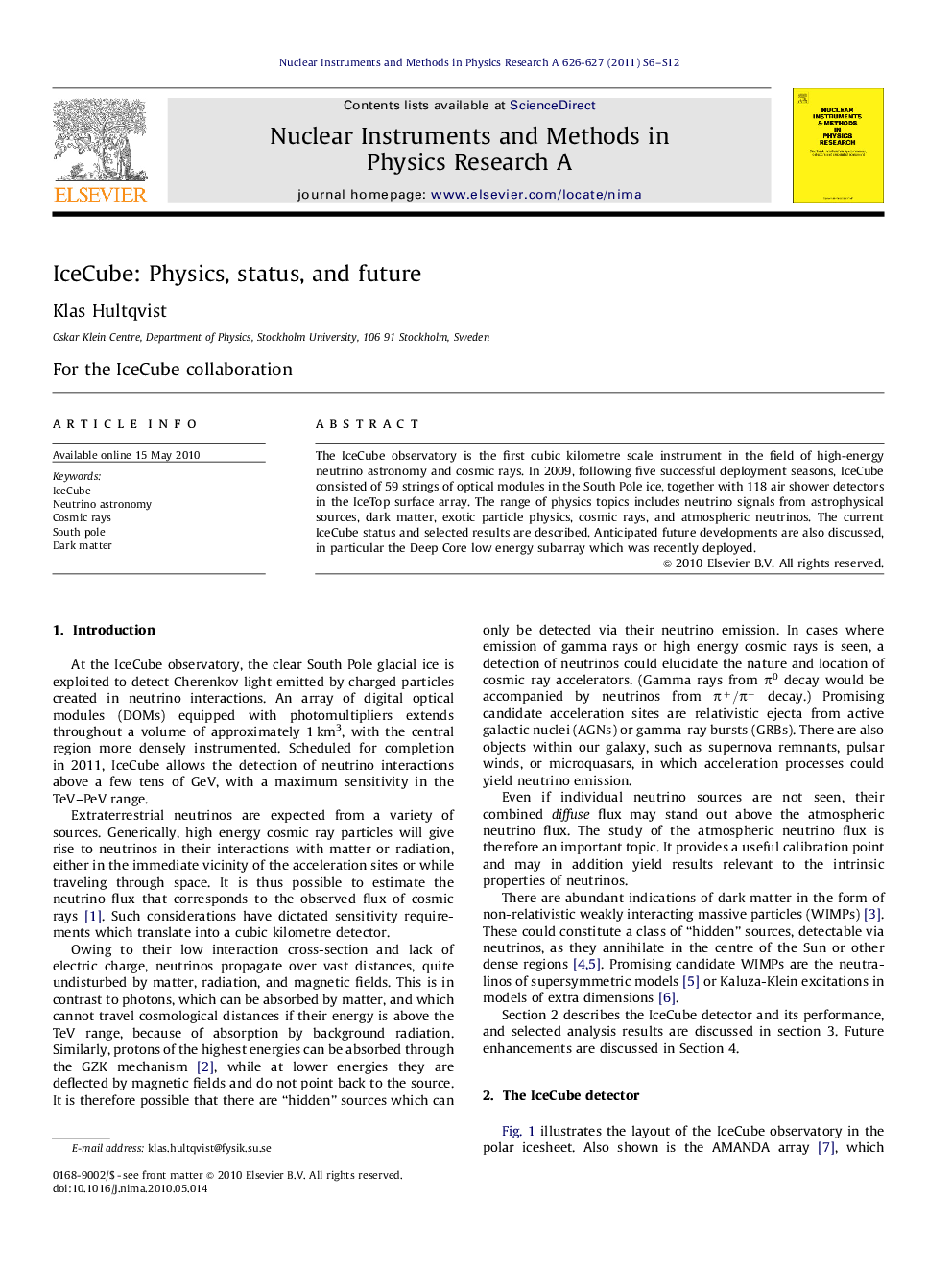| Article ID | Journal | Published Year | Pages | File Type |
|---|---|---|---|---|
| 1826007 | Nuclear Instruments and Methods in Physics Research Section A: Accelerators, Spectrometers, Detectors and Associated Equipment | 2011 | 7 Pages |
Abstract
The IceCube observatory is the first cubic kilometre scale instrument in the field of high-energy neutrino astronomy and cosmic rays. In 2009, following five successful deployment seasons, IceCube consisted of 59 strings of optical modules in the South Pole ice, together with 118 air shower detectors in the IceTop surface array. The range of physics topics includes neutrino signals from astrophysical sources, dark matter, exotic particle physics, cosmic rays, and atmospheric neutrinos. The current IceCube status and selected results are described. Anticipated future developments are also discussed, in particular the Deep Core low energy subarray which was recently deployed.
Related Topics
Physical Sciences and Engineering
Physics and Astronomy
Instrumentation
Authors
Klas Hultqvist, For the IceCube collaboration For the IceCube collaboration,
